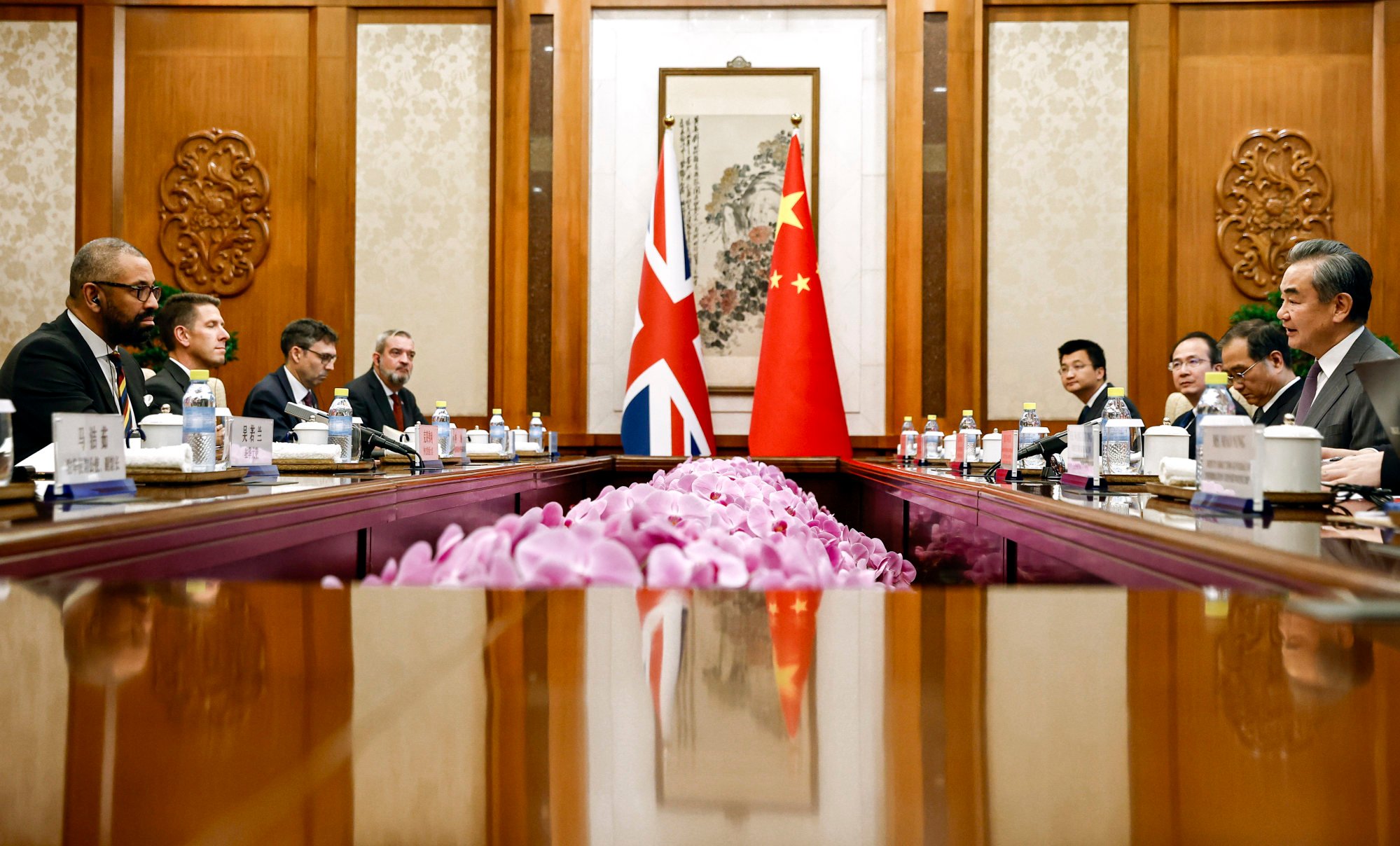Cleverly raised thorny issues including human rights concerns in Hong Kong and Xinjiang, stability in the Taiwan Strait, China’s alleged malign cyber activity, Russia’s invasion of Ukraine, and North Korea, according to a Foreign Office statement. He also urged China to drop sanctions on some British lawmakers.
But he also told reporters that it would be a mistake to isolate the world’s second-largest economy.
Applications for Hong Kong path to UK citizenship show no signs of slowing
Applications for Hong Kong path to UK citizenship show no signs of slowing
Yu Jie, a senior research fellow on China at Chatham House, a think tank in London, said while it marked a reopening of communication channels, a “substantial improvement” in ties should not be expected from one visit.
Advertisement
“Cleverly was not received by any members of the Politburo Standing Committee of the Communist Party – a very different reception compared with the US commerce secretary … who had an audience with Premier Li,” she said.
Advertisement
According to Yu, China is eager to revive foreign investment to boost its slowing economy but remains “perplexed” by the chaos in British politics, especially Brexit and the succession of prime ministers in its aftermath.
“China is therefore re-evaluating its relationship with London and the longevity of the current government,” she said, adding that China’s economic woes had given Beijing new impetus to engage with Europe.

George Magnus, a research associate at Oxford University’s China Centre, noted that the British foreign secretary’s trip came after those of four senior US cabinet members in the past two months, including Raimondo.
Advertisement
“From a Beijing perspective, the visit may have significance in a minor power paying respect to China and also from seeking dialogue,” he said.
While Britain is still a G7 economy with global ambitions, “its political punch is not what it was inside the European Union”, Magnus said. “There’s no reason Beijing will take the UK as a serious political force, other than as an ally of the US, and it could suit China if it could persuade the UK to be partial to China’s commerce and narratives, if that’s possible.”
He said many in Britain were sceptical about the Sunak government’s China strategy, which has been criticised as lacking a coherent, unified approach.
Advertisement
“Cleverly’s visit, seen from a UK perspective, seems a bit like the country’s China policy: opaque, and leaving us wonder what the purpose is,” he said.
Yu from Chatham House said Sunak’s approach to Beijing was more nuanced than that of his predecessors, noting that he had stopped short of calling China a strategic threat.
“However, a major challenge has been balancing a pro-business attitude with the demands of China-sceptic Tory backbenchers,” she said.
UK lawmakers refer to Taiwan as ‘an independent country’ in report
UK lawmakers refer to Taiwan as ‘an independent country’ in report
High-level exchanges are generally seen as positive at a time when the Cold War-style confrontation between China and the West is intensifying, according to Shi Yinhong, a professor of international affairs at Renmin University. But he said the impact of Cleverly’s visit remained to be seen.
Advertisement
He said Beijing saw London as among the most vocal critics of China ideologically – and more confrontational than European powers such as Germany and France – and as an advocate of military intervention in the Indo-Pacific region.
Like Raimondo’s China trip, Cleverly’s visit was also partly aimed at reopening communication lines. “But having channels and what those channels can produce are two entirely different things,” Shi said. “We have yet to see any signs of fundamental change in the current Sino-British ties that are overwhelmingly dominated by confrontation and competition.”
Advertisement


